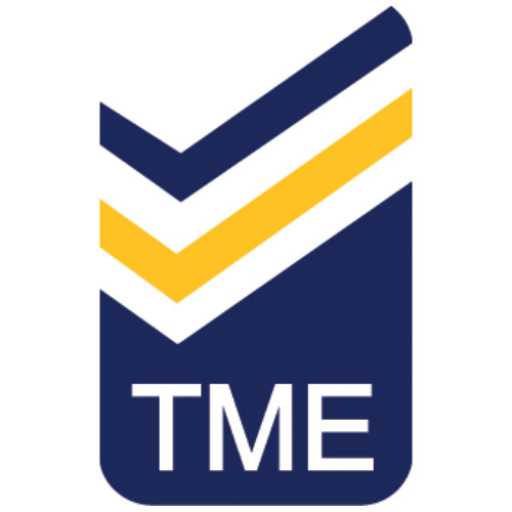Program Description:
The Logistics program offered by Management Edge Pty Ltd is designed to equip students with comprehensive knowledge and practical skills essential for the dynamic field of logistics and supply chain management. This program emphasizes the development of critical thinking, problem-solving abilities, and strategic planning skills to optimize the movement of goods, information, and resources across various industries. Throughout the coursework, students will explore core concepts such as procurement, inventory management, transportation, warehousing, and distribution channels, ensuring a robust understanding of the end-to-end supply chain process. The curriculum integrates theoretical foundations with real-world applications through case studies, practical projects, and industry internships, enabling students to apply their learning effectively in professional environments. Additionally, the program covers emerging trends like e-commerce logistics, sustainable supply chain practices, and technological innovations such as automation and data analytics. Graduates will be well-prepared for diverse career paths including logistics coordinator, supply chain analyst, procurement specialist, or operations manager. The program is delivered by experienced industry professionals and academic experts committed to fostering a hands-on learning experience that aligns with current market demands. By completing this program, students will gain the strategic insights and technical competencies necessary to excel in the logistics sector and contribute to the efficient management of global supply chains, ultimately advancing their careers in this vital industry sector.
The Logistics program offered by Management Edge Pty Ltd is a comprehensive course designed to equip students with the essential knowledge and practical skills necessary to excel in the dynamic field of logistics and supply chain management. Throughout the program, students will explore the fundamental principles of logistics, including inventory management, transportation, warehousing, procurement, and distribution strategies. The curriculum emphasizes the importance of efficient resource allocation and cost control, enabling students to develop strategies that optimize the movement of goods from suppliers to consumers.
Participants will gain an understanding of the various modes of transportation, including road, rail, air, and sea, and their respective advantages and challenges in different logistics scenarios. The program also covers modern technologies such as logistics information systems, automation, and data analytics, highlighting their role in improving operational efficiency and decision-making. Students will learn about global supply chain management, including international regulations, customs procedures, and risk management practices essential for managing logistics on an international scale.
Practical aspects of logistics are integrated into the curriculum through case studies, simulations, and project work, allowing students to apply theoretical concepts to real-world situations. The program aims to develop critical thinking, problem-solving skills, and operational competence, preparing graduates to manage complex logistics networks effectively. Additionally, modules on sustainability and environmentally responsible practices teach students how to design and implement green logistics strategies that minimize environmental impact.
The program also emphasizes leadership and communication skills, which are vital for coordinating teams, negotiating with vendors, and liaising with clients. Graduates will be well-prepared for careers in logistics management, supply chain consulting, transportation planning, and warehouse operations across various industries. Overall, this program provides a robust foundation for anyone seeking to pursue a successful career in logistics, driven by innovation, efficiency, and strategic thinking.
Program Requirements:
Applicants must hold a completed undergraduate degree or equivalent from a recognized institution. Preference is given to candidates with a background in business, engineering, supply chain management, or related fields. Proof of proficiency in English is required, demonstrated through tests such as IELTS with a minimum score of 6.5 or TOEFL with at least 79 in internet-based format. Prior professional experience in logistics, supply chain, or related disciplines may be advantageous but is not mandatory. Applicants must submit a completed application form, academic transcripts, a personal statement outlining career goals and motivation for pursuing the program, and two letters of recommendation from academic or professional references. Additionally, a curriculum vitae (CV) highlighting relevant experience is required. International students must seek visa approval and demonstrate sufficient financial resources to cover tuition fees and living expenses during the duration of the program. Candidates should also meet any specific health or immunization requirements outlined by the university. The program encourages diversity and considers all qualified applicants without discrimination. Applicants are advised to ensure all documentation is submitted before the application deadline to be considered for admission. Standardized test scores, academic records, and personal statements form the basis of the selection process. Successful candidates will be notified through official channels and may be required to participate in an interview, either virtually or in person, as part of the admission process. The program is designed to prepare students with the theoretical knowledge and practical skills necessary for management roles within the logistics and supply chain sectors, emphasizing analytical skills, strategic thinking, and operational expertise.
The Financial Studies component of the Logistics program at Management Edge Pty Ltd provides students with a comprehensive understanding of financial management principles as they relate to the logistics and supply chain industries. Students are introduced to fundamental financial concepts such as budgeting, cost analysis, investment appraisal, and financial planning, which are essential for managing logistics operations effectively. The curriculum emphasizes the importance of financial decision-making and how it impacts operational efficiency and competitiveness in the logistics sector. Students learn to analyze financial statements, evaluate financial risks, and develop strategies for optimizing resource allocation in logistics environments. Courses cover topics such as financial accounting, managerial finance, and the role of financial information in strategic planning. The programme also explores the use of budgeting tools and financial software to monitor and control costs associated with transportation, warehousing, inventory management, and procurement processes. Practical case studies and real-world simulations help students apply theoretical knowledge to tangible financial challenges faced by logistics companies. Additionally, the program highlights the significance of financial compliance and ethical considerations in financial reporting and management in an international context. By integrating financial studies into the logistics curriculum, students are equipped with the necessary skills to make data-driven financial decisions, enhance operational profitability, and contribute to the sustainable growth of their organizations. The financial components are designed to prepare students for managerial roles where financial literacy is key to strategic planning and operational success in the dynamic logistics industry.
The Logistics program offered by Management Edge Pty Ltd provides a comprehensive curriculum designed to equip students with the essential skills and knowledge required in the dynamic field of logistics management. This program covers a wide range of topics including supply chain management, transportation, warehousing, inventory control, procurement, and distribution strategies. Students will gain a deep understanding of how to optimize logistics operations to improve efficiency and reduce costs within various industries such as manufacturing, retail, and international trade. The curriculum emphasizes practical skills, including the use of modern logistics software and technology, to prepare graduates for the challenges faced in real-world logistics environments. Additionally, the program explores key concepts such as logistics planning, risk management, sustainability in supply chains, and the legal and ethical considerations involved in logistics operations. Throughout the coursework, students are encouraged to analyze case studies, participate in simulations, and undertake internships to gain hands-on experience. The faculty members are industry professionals with extensive experience, providing mentorship and insights into current trends and best practices. Graduates of this program can pursue careers in logistics coordination, supply chain analysis, distribution management, or procurement roles, among others. The program aims to develop strategic thinkers who can innovate and adapt in fast-paced supply chain contexts. It is suitable for individuals seeking to enter or advance within the logistics and supply chain industries, providing a solid foundation for further professional development or specialization. The program is structured to be flexible, accommodating working professionals and students from diverse backgrounds. It often includes online and part-time study options, making it accessible to a broad audience. Overall, the Logistics program at Management Edge Pty Ltd is designed to prepare students for successful careers by combining theoretical knowledge with practical application, fostering critical thinking, and promoting continuous learning in the ever-evolving field of logistics.






